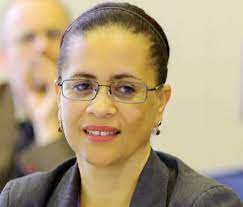

By Makeida Antonio
A panel of environmental experts critiqued the recent decision coming out of this year’s COP27 in Egypt to create a loss and damage fund to help developing nations cope with the extreme effects of global warming.
Tense negotiations continued past the 11th hour as the international event came to an end on November 20. The more controversial issues including identifying and expanding sources of funding – who will be asked to contribute to the loss and damage fund – will be adopted by a transitional committee at COP28 in November 2023.
Former United Nations volunteer Donaldson Anthonyson believes larger nations such as the United States prolonged meetings due to being against the way the loss and damage fund would be arranged to address flooding, drought, hurricanes, and other natural disasters in small island developing states (SIDS).
Anthonyson also highlighted that the eventual agreement was a signal that developed countries have admitted to destroying cultural heritage and the ability to have a successful economic recovery.
However, he warned that small island nations should brace for worsening environmental conditions despite the recent achievement since the fund would not prevent natural disasters and its consequences from occurring.
“All small island states including Antigua and Barbuda, are going to have to be prepared for what is going to come,” Anthonyson said on yesterday’s Big Issues.
Environment Minister and Alliance of Small Island States (AOSIS) Chair Sir Molwyn Joseph represented the interests of some 39 SIDS and low-lying coastal developing states in an effort that has been ongoing for more than two decades in climate negotiations and sustainable development processes.
Executive Director for the Environmental Awareness Group (EAG) Arica Hill said she is interested in how the fund would be implemented at a local level.
“I would love to hear from the head negotiator for climate change representing Antigua and Barbuda, how we expect to see it being implemented here in Antigua and Barbuda because it is one thing to hear about it from an international standpoint, but what does it mean here?” Hill questioned.
She also lobbied for greater financial consideration to be given to natural barriers to climate disasters which continue to be damaged as a result of development.
“I also think it’s important to us and our biodiversity systems to very much be a part of those conversations as well, because the reason why we get washed away is not just because of the emissions, it’s because our mangrove ecosystems, coral reefs, those things are not strong. We need to put a lot of effort and a lot of money towards strengthening those natural things that God gave us,” Hill said.
Chief Environmental Officer at the Department of Environment Ambassador Diane Black-Layne further explained the purpose of a loss and damage fund and how the unwillingness of developed countries could further disrupt the process of returning to normalcy and improving lives.
“It is not even 2 percent of global financial flows that is required, so all of the funds that we are designing under the fund is not that much. However, these funds are there to assist you to reset your national financing system, national building code, and national land use plan, training everybody in Antigua to rewire your house better, get solar panel systems, and buy shutters,” Black-Layne added.
The panellists noted that while the fund would not be “reparations” in the true sense of the word, it would hold those who contribute the most to climate change accountable for the loss of life and property currently experienced in small island developing states.

